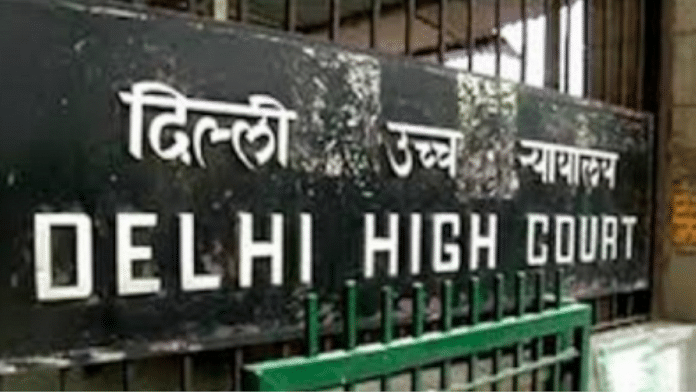New Delhi: The tug-of-war between the Delhi Police and the Delhi government over who should represent the former, in a case related to the February riots, turned ugly when Solicitor General (SG) Tushar Mehta withdrew himself as the special counsel.
The incident took place Monday when Justice Suresh Kait of the Delhi High Court was hearing a Delhi Police plea challenging the trial’s court’s bail order to riots accused Faisal Farooq.
A spat ensued between Mehta and Rahul Mehra, senior standing counsel (criminal) for the Delhi government, when the latter objected to the solicitor’s presence.
Mehra disputed the solicitor’s assertion that he was under instructions from the central government to file the present petition and appear before the high court. The senior counsel said the central government had no power to file the petition against the bail order.
Mehta then withdrew his name from the case “out of disgust”. He also accused Mehra of aiding the accused with his approach.
SG Mehta was assisted by a panel of special counsel — Additional Solicitor General (ASG) Aman Lekhi and advocates Amit Mahajan and Rajat Nair.
This wasn’t the first time that the two had sparred. Earlier, they had a spat before a bench of Justice Rajiv Shakdhar where student activist Safoora Zargar’s bail plea was listed.
An M.Phil student from the Jamia Millia Islamia, Zargar had sought bail on the ground that she is pregnant.
Mehra had then questioned the appearance of Mehta, ASG Aman Lekhi and other panel counsel.
Both bail matters — of Farooq and Zargar — were taken up Tuesday and argued by a panel of special counsel. Mehra did not appear in either of the two cases.
While Zargar got bail, the court gave time to Farooq’s lawyer to reply to the Delhi Police’s plea to cancel his bail.
Also read: Delhi, UP oppose Sharjeel Imam’s plea to consolidate sedition FIRs for his AMU speech
‘My office isn’t a post office’
Mehra had argued that the Delhi government’s approval was required for a special counsel to appear in a criminal matter and the lieutenant governor (LG) could not have appointed the panel in a “unilateral manner”.
The aid and advice of the Council of Ministers of Delhi government were a prerequisite for such appointments, Mehra submitted.
His office, he said, was not a mere post office. “I am an officer of the court, my office cannot be bypassed,” he said.
Mehra went on to allege that the central government had bypassed him because it found him “inconvenient”.
This is not the first time that Mehra had protested against the solicitor and a special counsel appointed by the LG to argue for the Delhi Police in cases related to the February riots.
On 20 May, Mehra and ASG Lekhi were involved in a similar tussle in a petition concerning the alleged illegal custody of a 25-year-old woman arrested under the anti-terror law – Unlawful Activities (Prevention) Act.
The woman’s brother had claimed that her custody was illegal at a time when the special courts were not functioning. But on the next date of hearing (29 May), Mehra conceded that the special counsel had permission from the Delhi government to appear in the matter.
‘Lieutenant governor can appoint special counsel’
Law officers appearing for the Delhi Police in the riots cases have maintained that they have permission from the LG to appear as special counsel.
They invoke the 2018 Supreme Court verdict to say that the LG has exclusive domain to issue orders under List I, which includes police as well as law and order.
Also, Section 24 of the Code of Criminal Procedure (CrPc) allows the central government to appoint, for the purposes of any case or class of cases, an advocate as a special prosecutor.
ThePrint spoke to some Delhi Police officers who said Mehra’s reading of the apex court judgment was wrong and the government’s approval was not necessary for every appointment of a special counsel.
A lawyer appearing in the riots case, who did not wish to be named, told ThePrint that Mehra has converted the court into a “turf war”.
“A court is not an individual lawyer’s personal fiefdom. Nobody can appropriate it to himself or herself. The proceedings before the court have to traverse in a manner that the law permits,” the lawyer added.
Also read: FIRs in Northeast Delhi riots ‘sensitive’, can’t be uploaded online: Police to HC




Pl. Explain what that term & word used ‘spat’, is it court language to use that word mean & sub standard. Presentation of the case before the court & allowing submissions is prerogative of the court. Who have conferred power to use such mean word against an Advocate is impermissible please note & this is not fair journalism.